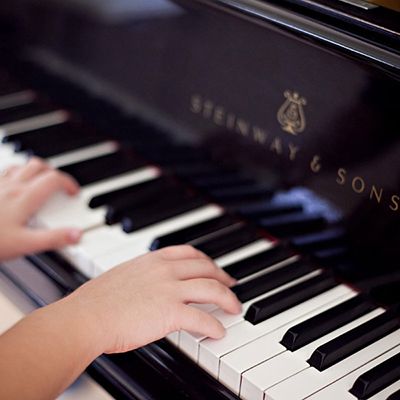Does music study make you smarter? Over the years there have been multiple studies linking better academic performance with music education; however, critics are quick to warn that correlation isn’t causation. Could it be those students who possess the patience, dedication, and aptitude for music also apply those same skills to academic study? If socioeconomic status is a predictor of academic success, so is the ability to pay for violin lessons.
Researchers at Boston Children’s hospital were determined to gain a better understanding of the correlation between academic success and music by addressing the two important variables in the control and test groups that had previously spawned skepticism: parents’ educational level and socioeconomic status. With all things equal, MRI imaging revealed that students who also study music engage more parts of their brains while performing cognitive tests. These students demonstrated greater proficiency at high-level thinking, including the ability to problem solve, multi-task, and make good choices: all indicators of high executive brain function. Over the course of a lifetime, high levels of executive brain function may be more of a determinant of success than IQ.
While the question as to whether music makes students smarter is compelling, a more relevant question may be: Does music study lead to success as an adult, and if so, how does it manifest? And, while the connection between correlation and causation can be challenged when it comes to quantitative measurements like IQ, the correlation between the skills mastered in high level music achievement and other walks of life is indisputable. Consider the following:
High-level Music Accomplishment and Success
Albert Einstein played the piano. Thomas Edison played the piano and violin. Thomas Jefferson is said to have played the cello, clavichord, and violin. Looking closely at any industry leaders will reveal accomplished musicians. Condoleeza Rice is a trained concert pianist. Woody Allen performs weekly with a jazz band. Journalists Paula Zahn and Andrea Mitchell both trained to become professional musicians. Steven Spielberg is a clarinetist and the son of a pianist. Those leaders shaping economics, business, and technology also share musical backgrounds. Alan Greenspan was a professional clarinet and saxophone player. Google co-founder, Larry Page also played the saxophone. Microsoft’s Paul Allen has a rock band. The former World Bank president James Wolfensohn performed with his cello in Carnegie Hall. And, the list is by no means complete. In personal interviews many of these high achievers credited their advanced music study for fostering the skills that shaped the thinking, attitudes, and work ethic of that lead to the triumphant success in their industries.
Music and Creativity
Music study reinforces the ability to create. It opens up the pathways to creative thinking. Creating music develops confidence in students as their abilities to compose, innovate, and produce culminate in a desired and positive outcome.
Music and Collaboration
The ensemble aspect of music, quite literally, teaches students to play well with others. The ability to listen, to know when to lead and when to follow are all valuable qualities in any industry where collaboration and teamwork are paramount for success. Music study also sharpens the ability to intertwine disparate ideas.
Music and Problem–Solving
Music, with its dual focus on the present and the future, teaches students to focus on both simultaneously. The improvisational aspect of music develops flexible intellectual and decision-making skills, and is the pinnacle of collaborative problem solving.
Music and the Drive for Perfection
Working for hours on a tricky musical passage eventually results in success. Music teaches that if one works hard enough, the “one more time” culminates in mastery. The connection between perfection and years of practice provide a clear direct path towards goals, both short and long term.
Music and Math
There is much discussion about the connection between music and math. Both music and math relate to patterns and interrelationships. Recognizing these patterns is a skill that translates to connecting multiple spheres. Pattern recognition is a paradigm that extends across all aspects of business, technology, and economics. It is here where musical study and investment strategies meet.
Music and Leadership
Pursuing music on an advanced level provides opportunities for leadership. The confidence to lead a section of an orchestra, direct a band, improvise in a jazz ensemble or perform as a soloist with other musicians all instill a sense of confidence in the student.
Consider the qualities that can be directly related to success in high achievers across all aspects of life: creativity, collaboration, discipline, problem solving, and leadership. Providing the opportunity for your child to take up an instrument of their choice may well be the greatest gift you can bestow upon them as they embark upon their journey toward adulthood.
The Growing Room, together with Village Music School, offers a comprehensive music program for children of all ages. Click here for more information or call 925-676-8400.


